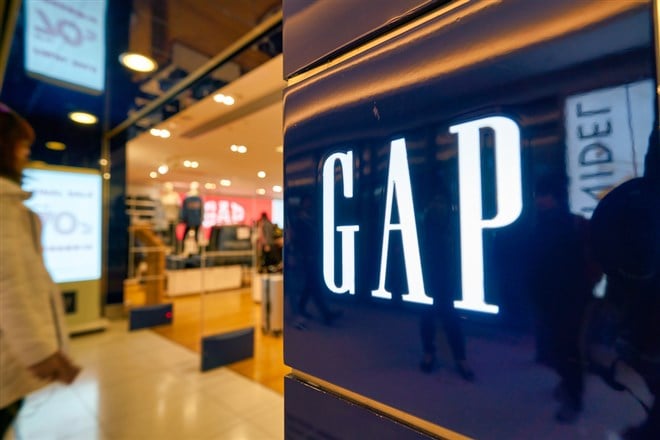Will Investors Lose Their Shirts Chasing Gap's 6.8% Dividend? Gap is facing many challenges much like other apparel industry names, but the retailer's low share price and high yield may be worth trying on.
This story originally appeared on MarketBeat

The bad news: Gap, Inc. (NYSE:GPS) shares are down 20% year-to-date and more than 70% from their post-Covid peak.
The good news: the clothes retailer now offers a stylish accessory in the form of a 6.8% forward dividend yield.
As the apparel industry adjusts to "new norms' in the wake of the pandemic, bolstering omnichannel sales is just part of the challenge. Companies continue to face supply chain snags and cost inflation. Waning demand on top of inventory buildups is yet another problem.
Gap is experiencing all of the above. These pressures have pushed its $9.00 stock down to the cost of a pair of Old Navy socks. But the retailer's low share price and high yield may be worth trying on.
Why Is Gap Stock Going Down?
Fittingly, Gap shares "gapped down' on March 10th after the company reported disappointing fourth quarter results. And with another Fed rate hike likely to impact discretionary spending, the stock has since trended lower.
For the quarter ended January 31st, Gap's revenue was down 6% as both store and online sales declined. Sales were also down in each business — Gap, Old Navy, Banana Republic and Athleta. Worse yet, a $0.75 per share net loss was much uglier than Wall Street anticipated.
The top and bottom line misses highlighted an "inventory meets falling demand' shockwave that has jolted retail peers. Abercrombie & Fitch blamed its earnings miss on the issue but the market didn't heed the warning ahead of Gap's release.
Keeping pressure on the stock is Gap's leadership void. Although the Board is reportedly closing in on a permanent CEO, the absence of a strong leader at a tumultuous time is adding to the investment's risk profile.
Is Gap Stock Undervalued?
It's not all doom and gloom. Gap's ending inventory was down 21% year-over-year in Q4. This shows products are being moved at the expense of markdowns and promotions. And while management is forecasting that Q1 sales will decrease in the "mid-single digit range,' quarterly comps should get easier in the back half of the year as inventory blowouts pave the wave for the holiday shopping season.
Improving inventory levels and cost cutting have Gap entering fiscal 2023 on better footing even as its stock slides. Analysts are expecting a return to profitability this year to the tune of $0.61 per share. This means Gap is trading at 15x this year's earnings estimate and below its five-year historical average P/E of 18x. It suggests the stock is significantly undervalued.
At the same time, Gap looks oversold from a technical analysis perspective. The relative strength indicator (RSI) on the daily chart has dipped below 15. This has happened on three other occasions in the past 12 months and in each case the stock rebounded. Another positive development is 250-day support at $8.89 which will be a key level to watch in the days ahead.
Is The Street Bullish on Gap Stock?
Wall Street research firms are less than bullish on Gap. Only one has been a buy among ratings issued since the fourth quarter earnings report. But since the lone bull is Goldman Sachs, investors may want to keep this one on the watch list. The firm has a Street-high $16.00 price target that implies nearly 80% upside.
Goldman is the exception, though, with the rest of the Street neutral or bearish on the struggling retailer. The good news is that among the skeptics, only one has a target that is below the current price. Sometimes when analyst sentiment is low but targets are above the current price, rating upgrades happen over time.
What about the market's other influential institutions? Hedge funds love the stock. In Q4, hedge fund managers increased their Gap holdings for the fifth consecutive quarter as the stock trended lower. This has set up a classic tug-of-war between bearish analysts and bullish hedgies.
While the professional opinions are mixed, Gap is an intriguing contrarian play that has been significantly de-risked. The worst appears to be ending if not over for the company with inventory and cost pressures abating. Aside from improving results, the stock's next major catalyst could be news of a CEO hiring, especially if the person is a proven industry veteran.
With Gap's share price depressed and its yield approaching 7%, the total return potential is worth the risk. A 67% forward payout points to a stable dividend and the yield is more than three that of the average consumer discretionary stock. Volatility will likely persist as macro issues get sorted out, but the downside appears limited from here.









